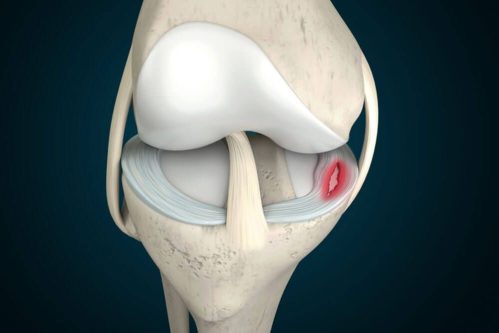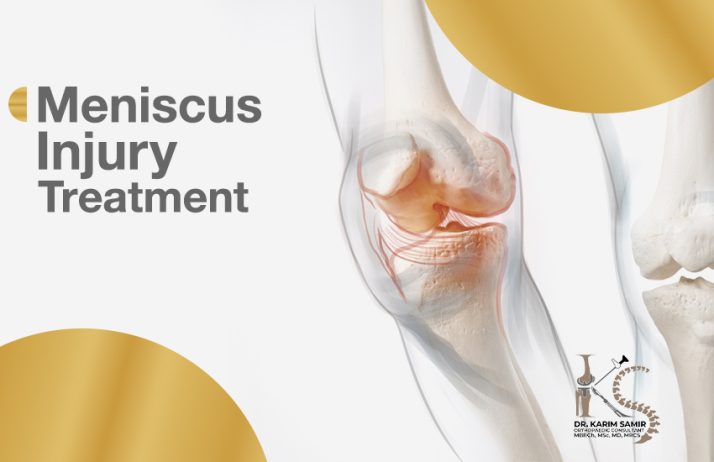Meniscus Injuries: Symptoms, Causes, and Treatment Options with the Best Orthopedic Surgeon in Cairo – Dr. Kareem Samir
Introduction: Meniscus injuries are among the most common knee injuries and can significantly impact daily movement and quality of life. If you’re looking for the best orthopedic surgeon in Cairo to treat your meniscus injury, Dr. Kareem Samir is the ideal choice. As one of the top orthopedic surgeons in Cairo, Dr. Kareem offers advanced treatment options for meniscus injuries, including both conservative and surgical approaches.
What is the Meniscus?
The meniscus is a piece of cartilage that acts as a cushion between the femur (thigh bone) and the tibia (shin bone) in the knee joint. Its primary function is to absorb shocks and distribute weight evenly across the knee. The meniscus is vital for normal knee movement, and any injury can cause significant pain and difficulty in movement.
Causes of Meniscus Injury
A meniscus injury can occur due to several factors:
- Sudden Movements: Twisting or pivoting motions can cause the meniscus to tear, often seen during sports.
- Sports Injuries: The most common cause of meniscus tears occurs in sports that require rapid movements, such as football or basketball. If you’re looking for the best doctor for sports injuries, Dr. Kareem Samir is the perfect choice.
- Aging: As we age, the meniscus becomes more prone to tears due to decreased flexibility and natural wear and tear.
- Other Knee Injuries: Injuries to other structures in the knee, such as ligaments or bones, can also lead to meniscus damage.
Symptoms of Meniscus Injury
Common symptoms of a meniscus tear include:
- Knee Pain: Pain is usually felt when moving or putting pressure on the knee.
- Swelling: The affected area may become swollen.
- Difficulty Moving: A person may have trouble bending or straightening the knee normally.
- Popping or Clicking Sensation: You may feel a popping or clicking sound in the knee while moving it.
How is a Meniscus Injury Diagnosed?
To diagnose a meniscus injury accurately, the following procedures are typically used:
- Physical Examination: The doctor moves the knee and checks for pain or discomfort in specific areas.
- X-rays: These help identify any bone fractures or other structural issues in the knee.
- MRI (Magnetic Resonance Imaging): An MRI is the most accurate test to determine the extent of the meniscus tear and any associated damage.
Treatment Options for Meniscus Injury
The treatment for a meniscus injury depends on the severity of the tear:
- Conservative (Non-Surgical) Treatment:
- Rest: Resting the knee and avoiding activities that put pressure on it.
- Ice: Applying ice can help reduce swelling and alleviate pain.
- Physical Therapy: Exercises to strengthen the muscles around the knee and improve flexibility.
- Pain Relievers: Medications such as NSAIDs (non-steroidal anti-inflammatory drugs) to reduce pain and inflammation.
- Surgical Treatment: If the injury is severe or does not improve with conservative treatments, surgery may be required:
- Meniscus Repair: For smaller tears, the meniscus can be stitched back together.
- Partial Meniscectomy: In cases of more extensive tears, the damaged portion of the meniscus is removed.
- Meniscus Transplantation: In cases of advanced degeneration, a meniscus transplant may be performed to replace the damaged tissue.
Recovery After Meniscus Injury
Recovery depends on the type of treatment:
- Conservative Treatment: Recovery can take several weeks to months, depending on the severity of the injury.
- Surgery: Post-surgery recovery typically takes 3 to 6 months, with rehabilitation through physical therapy to regain strength and range of motion.
Prevention of Meniscus Injury
To reduce the risk of injury, consider the following preventive measures:
- Regular Exercise: Strengthening the muscles around the knee can help prevent injuries.
- Knee Protection Gear: Wearing knee pads or braces during high-risk sports.
- Proper Warm-Up: Always warm up before engaging in physical activity to reduce the risk of sudden injury.
- Avoiding Sudden Movements: Prevent twisting or jerking the knee, which can cause strain on the meniscus.
Conclusion
Meniscus injuries can significantly affect your knee function and quality of life. If you’re searching for the best orthopedic surgeon in Cairo for your meniscus injury, Dr. Kareem Samir’s clinic offers advanced treatment options to restore mobility and ease pain. Don’t wait any longer – get in touch for a specialized consultation and treatment.
Contact Us Now for a Consultation with the Best Orthopedic Surgeon in Cairo!
Are you suffering from a meniscus injury?
Don’t let the pain affect your daily life. Contact Dr. Kareem Samir, one of the best orthopedic doctors in Cairo, for an accurate assessment and effective treatment.
- Book Your Consultation Today: Call 01020013313 or contact us via WhatsApp.
- Visit Us: 9106 Building, 9th Street, Mokattam, Cairo.
Take the step towards recovery today!

